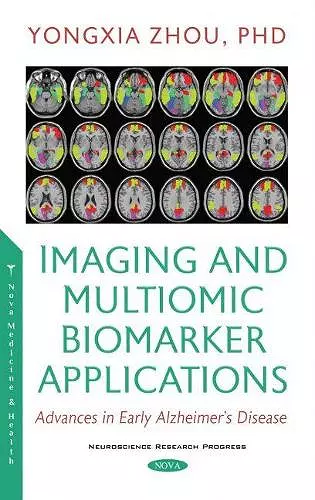Imaging and Multiomic Biomarker Applications
Format:Hardback
Publisher:Nova Science Publishers Inc
Published:20th Jan '21
Currently unavailable, our supplier has not provided us a restock date

This non-fiction hardback, "Imaging and Multiomic Biomarker Applications" from Yongxia Zhou, was published 20th January 2021 by Nova Science Publishers Inc.
ISBN: 9781536190793
Dimensions: unknown
Weight: 458g
251 pages